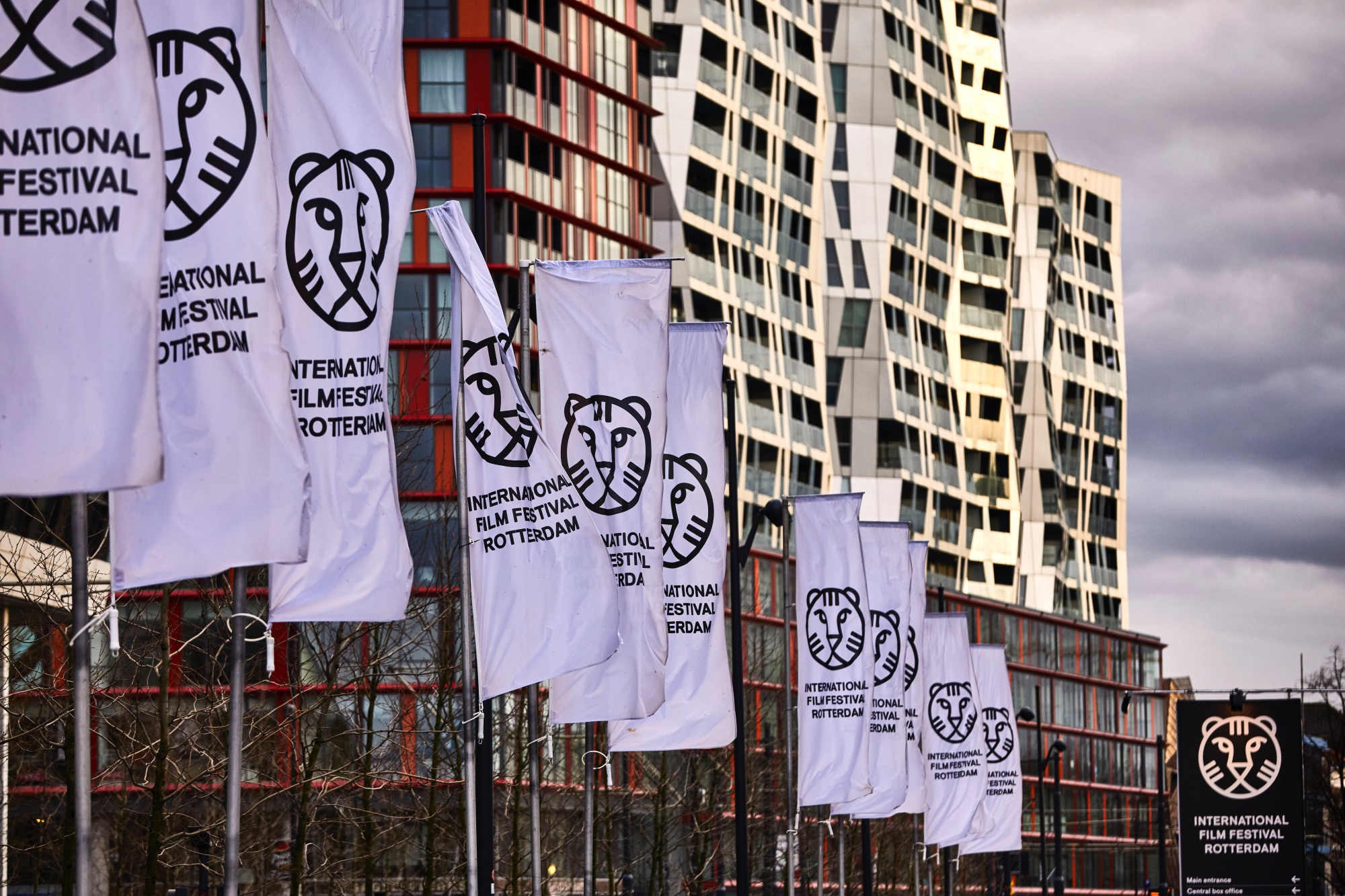
- Festivals
Rotterdam 2022: The Adventurous Spirit of IFFR
The International Film Festival Rotterdam (IFFR) is known for its eclectic and diverse programs. This year, its 51st edition has gone remote, once again due to the Covid-19 surge. While the festival community and the filmmakers are deprived of the privilege of getting together in person, the rest of the world has a better chance to enjoy the fruits of this festival’s rigorous discovery and selection process.
The festival opened on January 26th with Please Baby Please (2022) by American filmmaker Amanda Kramer. Although the film is on the outer edge of mainstream cinema, it boasts a stellar cast including Andrea Riseborough, Harry Melling, and Demi Moore.
The eccentric Kramer is highlighted throughout IFFR with screenings of four features, including the world premieres of Please Baby Please and Give Me Pity (2022),and a selection of shorts, all directed by her, as well as a live interview in the Big Talk segment.
IFFR’s flagship Tiger Competition offers 14 films competing for the Tiger Award, which comes with the generous cash amount of €40,000 to be shared by the director and the producer of the winner. Two more Special Jury Awards support emerging filmmakers with €10,000 each.
The selections hail from all corners of the world, from Paraguay across to Japan and Australia. In addition to this delightful diversity, a pioneering spirit shines through the lineup.
A questioning of social structures and relationships arises as one of the overall topics. The Indian feature The Cloud Messenger is about a student who seeks a way out of the regimented life of a prestigious boarding school; the Portuguese period tale A Criança tackles familial and class struggles within the context of colonialism; the Canadian Le Rêve et La Radio follows three young friends who try to find their own poetic place on the periphery of society; the Chinese film To Love Again deals with the new sociopolitical situation in China, morphing out of its oppressive past; Yamabuki speaks of a protesting young generation in rural Japan. All these films, in one way or another, reflect conflicts and imbalances between conventional society and that of the younger generation.
The environmental crisis looms inevitably important in EAMI, about a vanishing indigenous population in Paraguay, as well as in the Mexican documentary Malintzin 17, about humanity’s encroachment on nature through the observations of a little girl and her filmmaker father, the late Eugenio Polgovsky.
Perhaps the most prominent theme, however, is not about content only; it is about exploring various means of expression, the subject/object relationship, and the tricks of perception. Excess Will Save Us from Sweden looks into how private life is influenced by the media; the Netherlandish Met mes also deals with the manipulative power of the media and racial politics; The Israeli Kafka for Kids, described as “weird” and “surreal” by IFFR, uses a unique approach to talk about underlying philosophical and political issues; The Plains, an Australian production, takes a view of the contemporary world through a car’s windshield; the Chilean Proyecto Fantasma looks at everyday life, the reality and unreality of relationships in a highly subjective style; the American-made Silver Bird and Rainbow Fish portrays life in China over recent decades through collage, pop-art, clay animation, and more.
Even more eclectic than Tiger, the Big Screen Competition bridges “the gap between popular, classic and arthouse cinema”. The winner of this program will be determined by an audience jury, and will receive the VPRO Big Screen Award that comes with €30,000 cash prize (shared between the director and the distributor) as well as guaranteed distribution in the Netherlands.
A heist film from Kazakhstan (Assault), a campy thriller from Greece (Broadway), a comedy from South Africa (Daryn’s Gym), a personal documentary shot between Australia and Hong Kong (Drifting Petals), a musical animation film from Romania (The Island), a Kung Fu film about domestic violence from France (Kung Fu Zohra), a drama with a transgender protagonist from Spain (Mi vació y yo), and a pandemic-inspired fantastical story from the Netherlands (Splendid Isolation) – all toy with genre limits and definitions.
Additionally, the IFFR program includes more screening segments titled Harbour (a wild variety of films and styles), Bright Future (films by first-time directors), Cinema Regained (retrospectives and restored films) and a selection of 16 shorts in the Ammodo Tiger section, competing for three awards of €5,000 each. Other events include live interviews and conversations with filmmakers.
IFFR Pro features films that were made with funding by the festival. This interesting program focuses on visionary filmmakers who come from “regions with inadequate film infrastructures, cultural funding or freedom of speech”. Anatomy of Time, Clara Sola, Freda, and Noche de Fuego, shot respectively in Thailand, Costa Rica, Haiti and Mexico – were supported by the program, and are now streamed on the digital platform.
The festival is unfolding its rich and intriguing program through February 6, 2022.